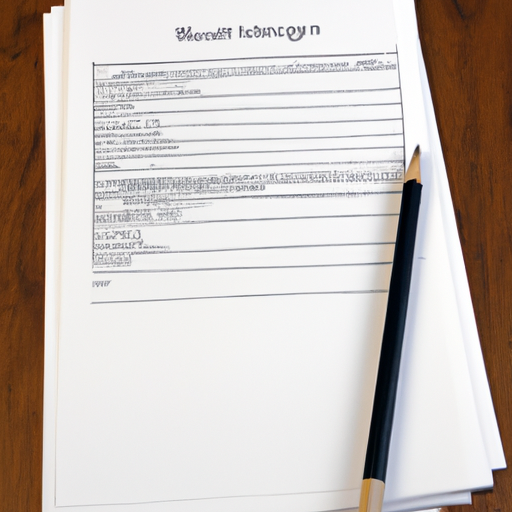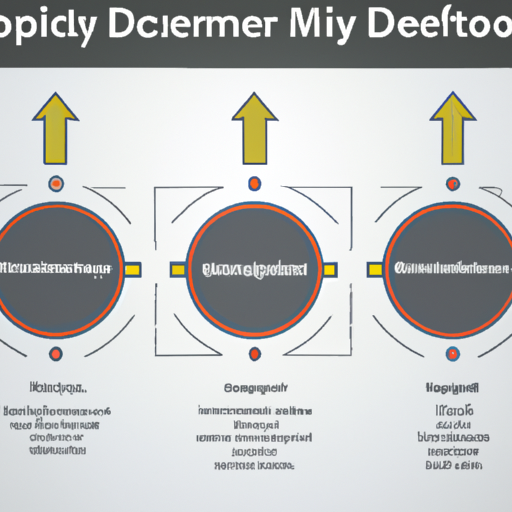Planning a Funeral Tips for Saving Money
Planning a Funeral on a Budget: A Guide for Those in Need
Hello there, friend. I understand that planning a funeral can be a tough and emotional time for families, and adding the pressure of finance to the mix can be overwhelming. However, with a little bit of effort and some creative thinking, we can work together to make sure your loved one’s funeral stays within your budget without sacrificing the love and respect that they deserve.
First things first, let’s acknowledge that we all want to give our loved ones the best possible send-off, but that doesn’t mean we have to break the bank doing so. It’s okay to prioritize and make tough decisions when budgeting for a funeral. What’s most important is that we remember our loved ones in a meaningful and dignified way that accurately represents their lives and memory.
Now, before we dive into the details of planning a funeral on a budget, let’s look at the advantages and disadvantages of doing it yourself versus hiring a professional funeral planner.
To DIY or Not to DIY? That is the Question
Planning a funeral can be a daunting task, especially when you’re on a strict budget. The dilemma often arises on whether to hire a professional or not. As someone who has experienced this firsthand, I can share with you some pros and cons to help you make a decision.
Let’s start with the pros of hiring a funeral director.

Pro: Having an expert to guide you through the process can make things easier. Funeral directors know the ins and outs of the industry, and can suggest affordable options that you may not be aware of.
Pro: Funeral directors can handle all the paperwork and legalities involved with planning a funeral.
Pro: They can take on some of the responsibility of planning, which can relieve some of the stress during a difficult time.
However, there are also some cons to hiring a funeral director.
Con: Funeral directors can be expensive. According to the National Funeral Directors Association, the median cost for a funeral director’s services in 2019 was $2,195.
Con: You may have limited control over the funeral arrangements. Funeral directors have their own styles and ways of doing things, which may not align with your wishes.
Con: Some funeral directors may try to upsell you on unnecessary services or products, which can increase the cost.
Ultimately, the decision to hire a funeral director or plan the funeral yourself depends on your budget, preferences, and comfort level with planning. If you decide to DIY, don’t worry – there are plenty of resources available to help you along the way.
How I Found Affordable Options for My Loved One’s Funeral
When planning a funeral on a budget, finding affordable options can be overwhelming. I was determined to provide a meaningful funeral for my loved one without breaking the bank. Here’s where I found affordable caskets, burial services, and more:
Funeral Homes
Many funeral homes offer packages that include services from start to finish. However, these packages can sometimes come with high costs. I found that if I chose specific services, such as embalming or transportation, rather than a complete package, I could save a significant amount of money.
Online Retailers
I discovered that there are many online retailers that offer affordable caskets and urns. When browsing online, I looked for retailers that offered free shipping or had sales or discounts. This saved me a lot of money compared to purchasing from a traditional funeral home.
Government Assistance Programs
There are government programs that offer financial assistance for funerals, such as Supplemental Security Income (SSI) and Veterans Affairs (VA) programs. I found out about these programs by contacting my local Department of Social Services and VA office. This greatly helped me with the costs associated with my loved one’s funeral.
Volunteer Organizations
Some volunteer organizations offer free or reduced-cost services for funerals. I reached out to local organizations such as churches, hospice centers, and non-profit organizations to see if they had any resources. I was pleasantly surprised to find out that a local florist volunteered to provide flowers for my loved one’s funeral in exchange for promoting her business to others.
In conclusion, finding affordable options for a funeral can take time and effort, but it’s possible. By utilizing the resources available in my community and online, I was able to provide a meaningful funeral for my loved one while staying within my budget.
What to Prioritize When Budgeting for a Funeral
When I had to plan a funeral on a budget, I quickly realized that there were certain expenses that were essential, and others that could be trimmed or eliminated altogether. Here are the most important things I learned:
1. Consider the deceased’s wishes
Before making any decisions, it’s important to think about what the person who has passed away would have wanted. Did they have any specific preferences? Did they leave any instructions or requests? By honoring their wishes, you can make the funeral more meaningful without breaking the bank.
2. Choose the right venue
The location of the funeral can have a significant impact on the overall cost. Consider choosing a venue that’s affordable, but also appropriate for the person being honored. For example, a small chapel may be more intimate and meaningful than a large, expensive funeral home.
3. Prioritize the essentials
When budgeting for a funeral, it’s important to focus on the essentials first. This includes the casket, burial or cremation services, and any necessary permits or fees. By prioritizing these expenses, you can make sure that the most important aspects of the funeral are taken care of, while still staying within your budget.
4. Cut back on non-essential expenses
While it’s important to honor the person who has passed away, some funeral traditions and customs can be expensive. Consider cutting back on things like floral arrangements, printed programs, and transportation. By focusing on the essentials and cutting back on non-essential expenses, you can reduce the overall cost of the funeral without sacrificing its meaning.
5. Get help from loved ones
Planning a funeral on a budget can be overwhelming, but it doesn’t have to be done alone. Consider asking loved ones for help with tasks like decorating, transportation, and preparing food. Not only can this reduce costs, but it can also bring people together to support one another during this difficult time.
By prioritizing expenses, choosing the right venue, and getting help from loved ones, it’s possible to plan a meaningful funeral on a budget. Remember that the most important thing is to honor the person who has passed away, and that this can be done in many different ways regardless of the budget available.
5. Reuse Resources: How to Reuse Flowers, Decorations, and Other Supplies from Previous Funerals
When planning a funeral on a budget, one thing I learned is the importance of reusing resources. For example, flowers can be quite expensive, but they can also be reused. I found that by selecting flowers and decorations that are versatile, I could reuse them from one funeral to another while still creating a unique and fitting atmosphere for each service.
One thing to consider is the type of flowers that were used in previous services. If the flowers were sent by the family of the deceased, it may be inappropriate to reuse them. However, if they were purchased by the funeral home or were provided by friends, they may be available for reuse. To give the flowers a new look, you can rearrange them, mix and match them with other colors, or add additional flowers to the mix.
Another approach for reusing resources is to consider repurposing decorations. For example, if there was a display of photographs or other memorabilia at a previous funeral, it could be reused at another service. Similarly, if there were candles or other decorative items, they could also be repurposed.
Finally, it’s worth mentioning that reusing resources can help you create a consistent theme for the funeral. By selecting items that are versatile and reusable, you can create a signature style that sets your funeral services apart from others. This can help you establish your brand and distinguish your funeral home from others in the area.
Final Thoughts: How to Make a Funeral Meaningful on a Tight Budget
Planning a funeral can be very expensive, but it doesn’t have to break the bank. With some creative thinking and careful planning, you can give your loved one a meaningful farewell without overspending. Here are a few tips I learned when planning a funeral on a tight budget:
Choose venues and suppliers carefully
One of the most effective ways to save money on a funeral is to carefully choose venues and suppliers that offer affordable packages. Some funeral homes may charge you for services you don’t need, so it’s important to compare prices and service offerings before committing to any one provider. You can also consider holding the funeral at a place that doesn’t charge a rental fee, like the family home.
Consider alternative options
There are many alternative options to traditional funeral services that can be significantly more affordable. For example, you can choose to have a memorial service instead of a funeral, which can allow you to skip the pricey casket and burial plot. You can also consider cremation or donating the body to science, which often come at a lower cost.
Personalize the funeral with DIY details
Personalizing the funeral with DIY details is a great way to give your loved one a unique farewell. You can consider creating homemade decorations and using flowers and plants from your garden instead of buying expensive arrangements. You can also make your own programs and guest books, allowing you to incorporate personal touches that will be deeply meaningful to your family.
Focus on what matters most
Ultimately, what matters most when planning a funeral is honoring the life of the person who has passed away. Instead of worrying about making your funeral look like something out of a movie, focus on creating a meaningful ceremony that celebrates your loved one’s life. Whether it’s by sharing personal stories, playing their favorite songs, or displaying cherished photos, there are many ways to create a heartfelt funeral without overspending.
Wrapping it Up: All You Need to Know to Plan a Funeral on a Tight Budget!
Phew! Planning a funeral when you’re on a tight budget can be a daunting task. But hopefully, these tips and tricks have given you some ideas on how to make the most out of the available resources.
To recap, it’s important to decide if you want to plan the funeral yourself or hire a professional. Both options have their pros and cons, so carefully weigh in your decision. Then, research for affordable options such as caskets, burial services and urns. Don’t be afraid to ask for prices and compare different options to find the best deal for you.
Prioritizing expenses is also crucial when budgeting for a funeral. Think about what’s most important to you, whether it’s a heartfelt eulogy or a simple yet tasteful casket. And if you’ve attended other funerals before, reuse existing resources such as flowers, decorations and even prayer cards to save on costs.
Finally, remember that even with a limited budget, it’s still possible to have a meaningful funeral. Whether it’s by inviting close family and friends or gathering in a special place, find ways to honor and celebrate the life of your loved one.
So there you have it! With careful planning and resourcefulness, you can plan a funeral that is both meaningful and affordable. Good luck, and may your loved one rest in peace.
Funeral Budgeting FAQs
What is the biggest expense of a funeral?
Wow, planning a funeral on a budget can be tough. As a virtual assistant, I have helped many people with similar concerns. But to answer your question, the biggest expense of a funeral is usually the casket or urn. These can range from several hundreds to thousands of dollars, depending on the materials and design. However, don’t let this discourage you from finding cheaper options. Remember that the most important thing is to honor your loved one’s memory and say goodbye in a meaningful way. There are ways to cut costs without sacrificing quality and dignity. Keep reading for some tips and tricks.
What is the simplest funeral you can have?
Well, let me tell you, arranging a funeral on a budget can be quite challenging, but it is doable. If you’re looking for the simplest funeral options available, then I suggest opting for a direct cremation or burial. This means that there won’t be any formal ceremony or visitation prior to the cremation or burial. It’s all done very straightforwardly, and the remains will be returned to you in a simple container. For a direct cremation, the average cost is around $1,000 to $2,000, which is considerably cheaper than a traditional funeral that can cost up to $10,000. Take note that the cost could increase depending on your location and any additional services you may want. Since there’s no formal ceremony involved, you don’t need to think about buying or renting a casket. Plus, embalming isn’t necessary either! Choosing a direct burial is another option. This means that the body is immediately buried in a simple container without any visitation, service, or embalming. According to the National Funeral Directors Association, direct burial costs on average around $1,500 to $3,000. Keep in mind that the cost of a burial plot will need to be included, which will add to the total price. Overall, planning a funeral on a budget is all about finding the most affordable options. You don’t have to skimp on the memories or the honorable send-off. Keep it simple, and don’t be afraid to ask lots of questions. There’s nothing wrong with wanting to keep the cost to a minimum while still paying respect to your loved one.
What is the most expensive piece when planning a funeral?
Alrighty folks, let me tell you – planning a funeral can be a pricey experience. It’s important to be mindful of your budget and prioritize the most important aspects of the funeral. From my experience, the most expensive piece when planning a funeral is typically the casket. Funeral homes often offer a variety of caskets at different price points, ranging from a few hundred dollars up to tens of thousands (yikes!). It’s important to remember that the casket is not the only option for laying your loved one to rest. Don’t be afraid to explore other options such as a rental casket or even a cremation urn.
Now, let’s talk about some ways to save money while planning a funeral. First off, consider having the funeral or memorial service at a location other than the funeral home. This could be a church, park, or even your own home. This eliminates the need for any additional fees associated with using the funeral home’s facilities. Additionally, consider purchasing any necessary items (such as flowers, programs, or even the casket) from outside sources rather than directly through the funeral home. This could save you a significant amount of money.
Finally, don’t be afraid to talk to the funeral director and ask for their advice on how to save money. They may have suggestions for alternative options or packages that fit within your budget. Remember, the most important thing is to honor your loved one’s memory in a meaningful way – it doesn’t have to come with a hefty price tag.
planning a funeral on a budget
Well, planning a funeral on a budget can be difficult, but it doesn’t have to be impossible! First off, it’s important to prioritize what is most important to you and your loved ones when it comes to the funeral arrangements. Maybe you want a simple service with just close family and friends, or perhaps you’d like a bigger gathering. Whatever it may be, make sure you have a clear idea of what you want before starting to make any plans.One way to save money on a funeral is to opt for cremation instead of a traditional burial. Cremation tends to be a more affordable option and can still allow for a meaningful service. Another great tip is to shop around and compare prices from different funeral homes. Prices can vary drastically, so don’t be afraid to negotiate.Another way to save money is to consider having the service at home or in a public outdoor space instead of a funeral home. This can cut down on rental costs and allow for a more personalized and intimate setting. You may also want to consider a memorial service instead of a funeral, as this can be more cost-effective and still honor your loved one’s life.It’s important to remember that the funeral industry can be very expensive, but there are ways to cut costs without sacrificing the meaningfulness of the service. By prioritizing what is most important to you and your loved ones, shopping around for affordable options, and thinking creatively about the setting and style of the service, you can plan a funeral that is both respectful and within your budget.






